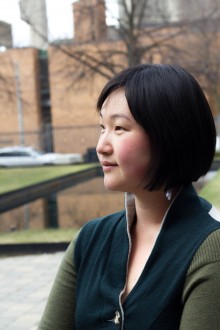Gender and the Boundary Work of the Nation: Social Integration Programs for Marriage
Migrant Women in South Korea and Taiwan
Professor Hae Yeon Choo has won a USD30,000 grant (2014-2015) from the Academy of Korean Studies for her project, “Gender and the Boundary Work of the Nation: Social Integration Programs for Marriage Migrant Women in South Korea and Taiwan.”
Situated at the crossroads of two major socio-economic transformations, Asia has emerged as a rich site for the study of migration. The transition to a post-socialist economy and neoliberal reforms propelled the migrant flow out of countries like China, Vietnam, and the Philippines, while the economic ascendance of the “Four Asian Tigers” of South Korea, Taiwan, Singapore, and Hong Kong made these countries into attractive new migrant destinations. Unlike the United States or Western Europe, migration regimes in Asia are characterized by a high degree of exclusion from long-term settlement for labor migrants, leaving cross-border marriages as a limited migrant pathway. Thus, in the past three decades, an increasing number of women have entered into the circuit of short-term migrant work, or pursued transnational mobility through cross-border marriages within Asia.
South Korea and Taiwan, with highly active social integration programs for marriage migrant women that involve an active participation from local citizens, offer an ideal case study to examine on-the-ground interactions between migrants and citizens. Both in South Korea and Taiwan, the state devoted significant funding to social services and integration programs targeting marriage migration women since the mid-2000s, and the civil society in both countries responded to this by offering various educational programs, such as Korean and Chinese language, cooking, and employment training. This multi-sited ethnography extends the scholarship of migration and citizenship further by looking at how the practice of citizenship takes different gendered and classed forms for local citizens and migrant women in the different national contexts of Korea and Taiwan, and illuminates how the distinctive mode of civil society mobilization and its gender and class politics shape gendered paths to citizenship and migrant incorporation.
